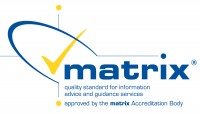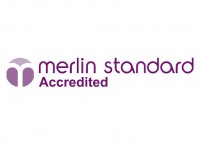The New Social Value Model and the Procurement Act: A Game Changer for Social Recruitment

By Emma Grigson, Partnerships and Social Value Solutions Director at PeoplePlus.
It's a significant Spring for PeoplePlus Partner Services and the social value offer for employers across our network. At the end of February, the Government published its updated National Policy Procurement Statement (NPPS) and set out a new social value model which emphasises recruiting from disadvantaged groups and encourages greater levels of transparency from suppliers on how they intend to do so. Whilst this'll take time to embed, going forward it won't be enough just to put words into a bid. Increasingly, organisations will be asked to provide specific metrics (see our image above which details our approach) and KPIs to demonstrate their commitment.
These new social value 'themes' cover both England and Wales. Scotland has its own specific legislation in place - that looks to enhance 'community wealth' creation through employability, skills and community partnerships.
What does this mean for employers?
For companies seeking government contracts, the 'S' in ESG becomes even more important. Whilst these themes were in the previous model, employers must now showcase their efforts in hiring from disadvantaged groups, such as ex-offenders and the long-term unemployed. It is no longer enough for companies to state good intentions (though this is a great place to start as with the Social Recruitment Covenant) - evidence of impact and active commitment to changing recruitment and support for people who face employment barriers will need to be provided.
PeoplePlus has some great examples of clients we work with through the Social Recruitment Framework and the Social Recruitment Advocacy Group where they are taking direct action to change their recruitment processes - plus advocating for inclusive hiring practices with their supply chain partners. One such organisation, BT, joined us at the Social Recruitment Advocacy group summit in Cardiff on 20 March to explain to over 100 employer representatives exactly what they have done to help young people struggling with barriers to work.
Beyond direct recruitment, businesses will be encouraged to ensure their supply chain is helping them to maximise social impact. This means that employers bidding for contracts will have to do more with their suppliers to support 'capacity building' and encourage those suppliers to commit to inclusive recruitment.
Reducing crime through employment
A key aspect of the new social value model is the extent to which 'social value activities' set out in bids can reduce crime. Studies show that prison education and pathways to stable jobs are essential if we are to reduce levels of reoffending. That's why PeoplePlus has reached out to Mitie, Sodexo and Timpson to host an upcoming round table event with their senior executive teams in order create a major public facing campaign that will encourage even more employers to look at how they can recruit from this talent pool.
Engaging employers and supply chains
The Social Recruitment Advocacy Group (SRAG) hosts regular “Lunch and Learn” sessions, each with upwards of 40 employers from diverse sectors in attendance. February's session highlighted how important it is to support supply chain partners to understand and adopt the new Social Value Model. We'll be hosting a follow up lunch and learn webinar with a guest speaker from the Cabinet Office to provide practical examples of how they can boost supply-chain involvement.
It is true, larger employers have a crucial role to play. Companies like Lidl, GXO, Speedy Hire, Sodexo and Mitie are very focused on ensuring social value is threaded right through their businesses. Indeed Sodexo recently became the first recipient of an Ambassador level SRAG Charter Mark in recognition of their forward thinking approach to embedding social value. By sharing best practices, offering guidance and sharing resources such as unused Apprenticeship levy, they can help smaller supply chain partners align with the new requirements.
Collaboration across businesses will drive a more inclusive workforce.
The role of SMEs in social value creation
One concern that we have heard in the debate about social value is how hard it can be to engage Small and Medium Enterprises (SMEs), and micro-businesses. Smaller organisations have a unique opportunity to create positive change, adding real impact due to their close ties to local communities, and can work with larger businesses to develop inclusive recruitment strategies.
This 360 degree approach is a theme our SRAG activities will highlight throughout 2025. By supporting disadvantaged groups, SMEs can enhance their reputation and access new business opportunities. Equally, larger companies in our network can also do more to assist SMEs by providing mentorship, resources, and shared initiatives that promote social recruitment. We can support this virtuous circle, helping us drive the best outcomes for our communities!
Collaboration will be key to ensuring that businesses of all sizes contribute to a fairer labour market - and it really does encompass what PeoplePlus and the SRAG are good at - dot connecting and finding ways to build up 'business confidence' to drive social impact.
The next three quarters of 2025 promise to be rich with potential for social impact - and we're looking forward to the journey with our employers and partners!








